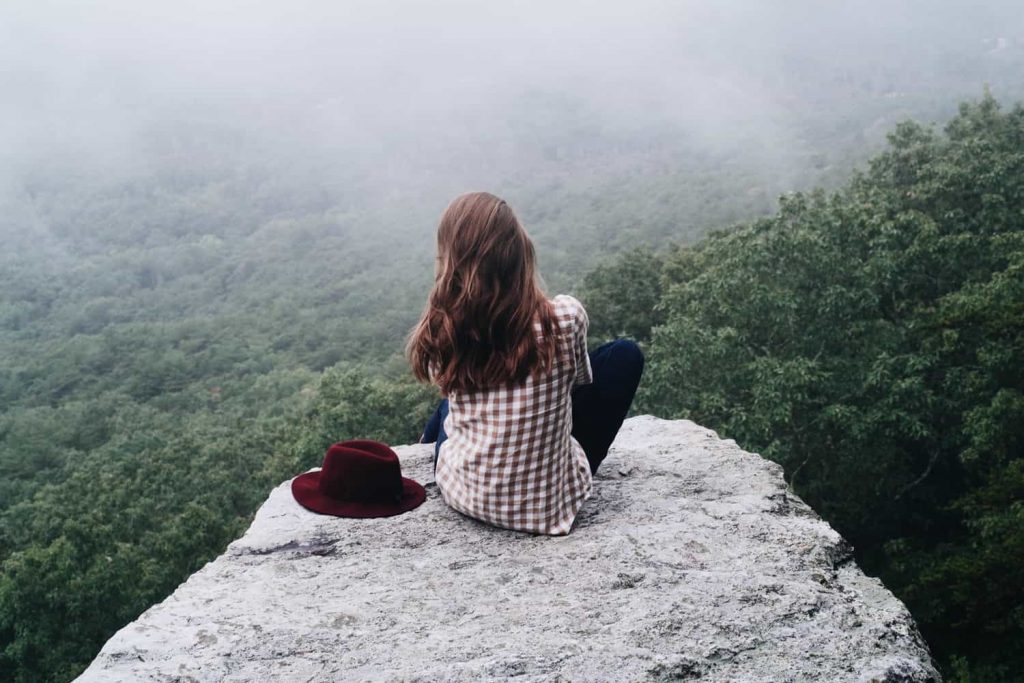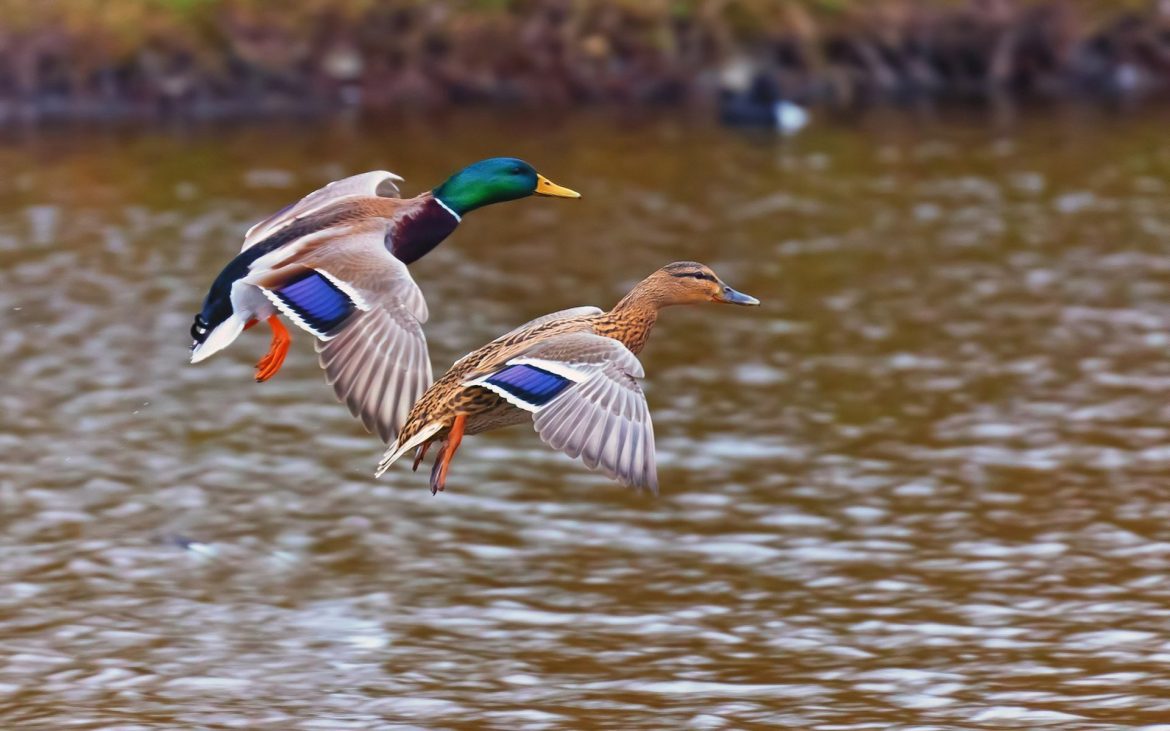A mallard couple was lounging in the shallows of ‘the beach,’ a short sandy stretch in wooded Lower Park, as I approached. Not wanting to disturb them, I backed away and walked to my meditation place at the adjacent site.
After I took my seat, they paddled by, steering sideways against the strong current. Then, surprisingly, they slowly made their way back upstream until they were right in front of me, only a few feet away.
You couldn’t tell who was leading, the male or the female, but you sure could tell their gender by their coloration. The male sported the fluorescing green-blue neck characteristic of their species, as well as fine array of brown, blue, white and black feathers on his torso.
The female was a rather drab, mottled brown, with only a blue chevron on its side adding a splash of color. They lingered, feeding and preening, for an hour only feet away.
At first I thought they were almost domesticated, so used to people in the park. But a feeling of connection grew, and I had the sense that it flowed from one’s awareness and sensitivity on first coming upon them.

They were so close I could study every feature, including their rather beady eyes. The male kept an eye on me at first, standing guard as the female often turned rump up as she foraged in the mud for whatever morsels they eat.
But after a half hour, there was a feeling of companionship like I’ve never felt with wild creatures before (or rather semi-wild, since they make their home along the stream of a small city).
When you turn off your cell and sit by a stream, or even in some relatively quiet spot of nature in a city, it allows you to listen, look and feel what is happening outside and inside oneself. One realizes that our identities are socially derived constructs, whereas our beings are solitarily discovered states.
Nature and the universe are imbued with limitless solitude. So when a human being is completely alone, allowing for even a half hour of solitude without isolation every day, the Earth and universe open to us.
One finds one’s need for others dissolves in the embrace of solitude. Paradoxically, when we return to society, we are more complete and compassionate social beings.
Despite the throngs of thongs in Florida during the pandemic, Jean-Paul Sartre was wrong when he said, “Hell is other people.” Hell is the mob, the antithesis and absence of salubrious solitude.
What about the pervasive and persistent idea that “people are socially embedded creatures” and that it is “through a process of deep imitation that we learn, empathize and share culture?” It’s not enough just to say that’s half true, and the wrong half at that, or to blame the net for why so many people are caught in a web of one kind or another.
The remedy for man’s innumerable social ills is not the fading ideal of better communities, driven by the empty hope that a localist reaction to the crisis of the global society and consciousness can ever be an adequate response. The remedy, as counter-intuitive and un-scalable as it is, is giving primacy to solitude over sociality.

“Everywhere, there is a great, unfathomable richness of solitude.” But we would rather be miserably isolated than peacefully alone, rather be lonely in the crowd than free of need and striving. That is the human tragedy, and each one of has the capacity to remedy it within, not only for ourselves but also for humanity, non-imitatively.
The mallards crossed the stream just before I prepared to leave. A pair of mergansers shot by on the current, appearing regal with their crests and sleek bodies next to the portly mallards.
As I gathered up my things I heard a great ruckus, and turned to see that another male had intruded on the domestic bliss. A great fury of beating wings, splashing water and honking erupted, as the males fought ferociously for the female.
By the time I climbed the bank, the fight had extended a full 200 meters downstream, and I could still hear them as I rejoined the main path.
Stopping for a moment at the adjacent site where I first saw the mallard couple, I observed one male, presumably the mate, chasing the other in flight at full speed up the creek. He returned less than half minute later, flying at a leisurely pace. Nature can be funny too.
Martin LeFevre

